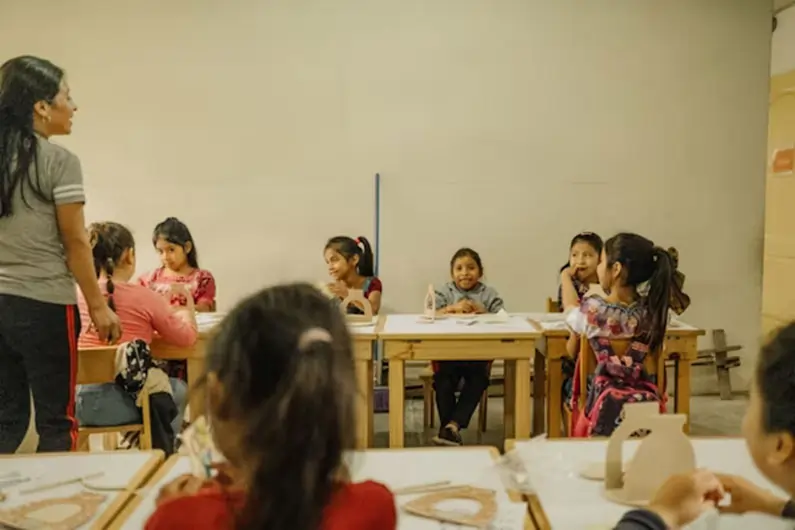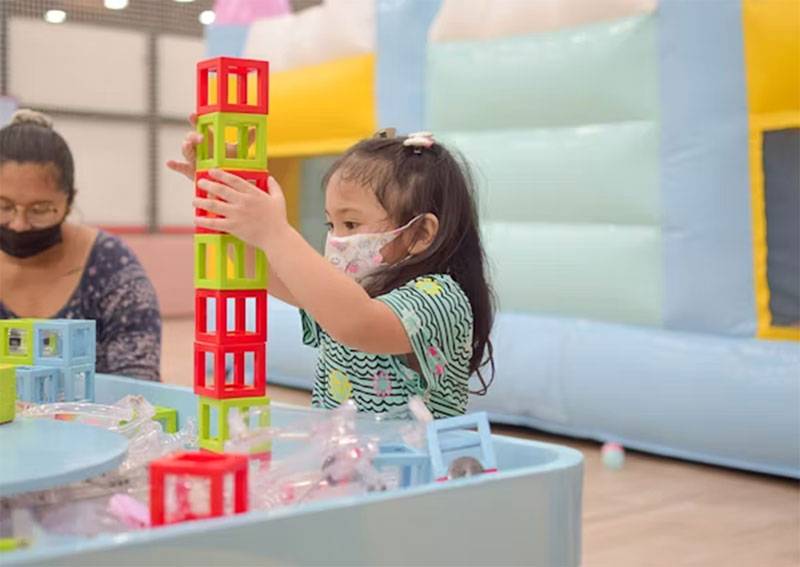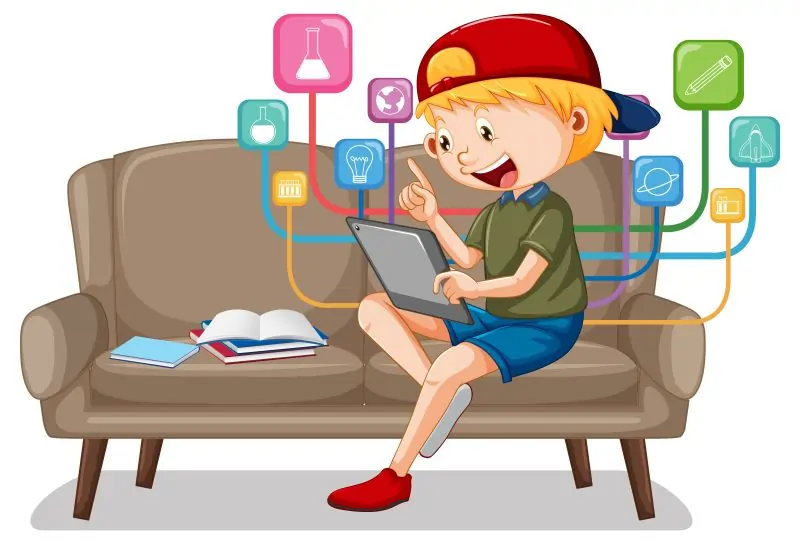Raising Confident Learners: A Parent’s Guide to Supporting Your Child’s Educational Journey
Every parent dreams of watching their child flourish—not just academically, but as a confident, capable individual ready to take on the world. Yet the path from those precious early years to successful schooling can feel overwhelming. Between developmental milestones, educational choices, and the constant worry about whether we’re doing enough, parenting in today’s world requires both intuition and informed decision-making.
The truth is, your child’s educational journey doesn’t begin on their first day of school. It starts much earlier, in the everyday moments of connection, play, and discovery that shape their developing brain. As parents, understanding how to nurture this growth from the earliest stages, recognize when extra support might be beneficial, and make thoughtful educational choices can profoundly impact your child’s future. This guide explores practical strategies for supporting your child’s development at every stage, helping you navigate the decisions that matter most for your family’s unique situation.
The Critical Foundation: Understanding Early Development
The first few years of your child’s life represent an extraordinary period of rapid brain development. During this time, neural connections form at an astonishing rate—over one million per second. These connections lay the groundwork for all future learning, behavior, and health outcomes. It’s why early experiences matter so profoundly, shaping not just what your child knows, but how they think, interact, and approach challenges.
Research consistently shows that responsive, nurturing care during these formative years builds a strong foundation. Simple activities like talking, reading, singing, and playing aren’t just pleasant pastimes—they’re essential brain-building experiences. When you respond to your baby’s coos, narrate your daily activities to your toddler, or engage in pretend play with your preschooler, you’re actively supporting cognitive development, language acquisition, and emotional regulation.
However, every child develops at their own pace, and sometimes parents notice that their little one isn’t quite meeting expected milestones or struggles in specific areas. Perhaps your toddler isn’t yet speaking as much as their peers, or your preschooler finds it challenging to engage in social play. These concerns, while sometimes worrying, don’t necessarily indicate a serious problem. But they do deserve attention.
This is where specialized support can make a remarkable difference. Services focused on early childhood intervention work with families to address developmental delays or disabilities during these crucial early years. The beauty of intervention at this stage is that young brains are incredibly plastic—meaning they’re exceptionally capable of forming new neural pathways when given appropriate support and stimulation. Whether your child needs help with speech development, motor skills, social interaction, or cognitive abilities, targeted early support can prevent small challenges from becoming larger obstacles later in life.
Recognizing When Your Child Might Benefit from Extra Support
One of the most challenging aspects of parenting is knowing when to trust that your child will catch up in their own time, and when to seek professional guidance. Every parent has heard reassurances like “Einstein didn’t talk until he was four” or “boys develop language skills more slowly,” but these well-meaning comments can sometimes delay necessary support.
Trust your instincts. You know your child better than anyone else. If something feels off—if your child seems frustrated trying to communicate, struggles significantly with activities that peers handle easily, or shows regression in skills they’d previously mastered—it’s worth consulting with professionals. Pediatricians can conduct developmental screenings, and specialists can provide comprehensive assessments if needed.
Early identification doesn’t label your child; it empowers them. When challenges are addressed during the preschool years, children gain tools and strategies that help them enter formal schooling on stronger footing. They develop confidence in their abilities rather than frustration over their struggles. Parents also gain understanding and techniques that transform daily interactions into therapeutic opportunities.
Many intervention programs work directly in family homes or familiar environments, making the support feel natural rather than clinical. Therapists collaborate with parents, helping them incorporate developmental strategies into everyday routines—mealtime becomes language practice, getting dressed builds motor skills, and playtime strengthens social interaction. This integrated approach ensures that learning happens throughout the child’s day, not just during scheduled therapy sessions.
The Transition to Formal Education: Setting the Stage
As your child approaches school age, a new set of considerations emerges. The educational environment you choose will significantly shape not just what your child learns, but how they view themselves as learners. This decision goes beyond academics—it encompasses values, culture, teaching philosophy, and the overall environment where your child will spend a substantial portion of their childhood.
For some families, the decision involves weighing traditional public or private schools in their community. For others, particularly those living abroad or seeking specific educational approaches, the conversation might include international education options. These decisions aren’t always straightforward, and what works beautifully for one child might not suit another, even within the same family.

Consider your child’s learning style, temperament, and needs. Some children thrive in structured environments with clear expectations and traditional teaching methods. Others flourish in more progressive settings that emphasize self-directed learning and creativity. If your child has experienced developmental challenges, you’ll want to ensure the school has adequate resources and willingness to provide necessary accommodations.
Location matters too, but not always in obvious ways. While proximity to home offers convenience, the school’s culture and quality matter more than the daily commute time. For families living internationally or considering relocation, researching educational options becomes even more complex. Understanding the landscape of quality educational institutions in your area—or potential future locations—helps you make informed decisions that align with your family’s values and your child’s needs.
Exploring International Education Options
In our increasingly connected world, many families find themselves navigating education in foreign countries, either by choice or circumstance. International schools offer unique benefits, particularly for expatriate families or those seeking globally-minded education for their children. These institutions typically teach in English (or other international languages), follow recognized international curricula, and create diverse learning communities where students from various cultural backgrounds learn alongside each other.
For families in Southeast Asia, Singapore stands out as an educational hub. The city-state hosts numerous high-quality educational institutions, many following curricula from different countries or international frameworks like the International Baccalaureate. Parents researching options in this region often seek guidance on which schools might best fit their child’s needs, considering factors like curriculum approach, campus facilities, extracurricular offerings, and school culture.
If you’re exploring education in Singapore or simply curious about the international school landscape, resources that review and compare top international schools in Singapore can provide valuable insights into the different philosophies, curricula, and environments these institutions offer. Understanding these differences helps families make choices that align with their educational priorities and their child’s learning profile.
International schools often attract families who value cultural diversity, strong language programs, and curricula recognized globally. Many emphasize developing internationally-minded students who think critically about global issues and appreciate multiple perspectives. For children who’ve lived in various countries or have multicultural backgrounds, these schools can provide a sense of belonging and continuity amid frequent transitions.

Beyond Academics: Nurturing the Whole Child
While academic preparation matters, the most successful learners are those who develop strong emotional intelligence, resilience, creativity, and curiosity. These qualities don’t come from worksheets or flashcards—they emerge from rich, varied experiences and supportive relationships.
Encourage your child to explore diverse interests. Music lessons teach discipline and pattern recognition. Team sports build cooperation and perseverance. Art projects develop fine motor skills and creative thinking. Unstructured outdoor play fosters problem-solving and physical development. Each activity contributes to your child’s growth in multiple dimensions.
Reading together remains one of the most powerful tools for building both academic skills and emotional connection. Beyond teaching literacy, shared reading time exposes children to new vocabulary, complex ideas, and different perspectives. Discuss the stories you read, ask open-ended questions, and let your child see you reading for pleasure. Creating a home where books are treasured and curiosity is celebrated matters more than any formal curriculum.
Don’t underestimate the value of boredom and free play. While structured activities and educational programs have their place, children also need time to simply be—to imagine, create, and direct their own play. These unstructured moments build executive function skills like planning, decision-making, and self-regulation. They also allow children to process experiences and develop their unique interests and personalities.
Advocating for Your Child
Whether your child attends a neighborhood school or an international institution, whether they’ve received early intervention or developed typically, your role as their advocate remains constant. This means maintaining open communication with teachers, understanding your child’s strengths and challenges, and ensuring they receive appropriate support when needed.
Regular conversations with educators help you stay informed about your child’s progress. Share relevant information about your child’s learning style, interests, and any areas where they might need extra support. Don’t hesitate to request meetings when you have concerns. Teachers appreciate parents who engage constructively and share insights about their children.
If your child has an Individualized Education Plan (IEP) or requires accommodations, ensure these are implemented consistently. Keep detailed records, celebrate progress, and address concerns promptly. Remember that advocating isn’t about being demanding—it’s about ensuring your child has what they need to succeed.

Teach your child to advocate for themselves as they mature. Help them understand their own learning needs and preferences. Practice phrases they can use to request help or clarification. Building self-advocacy skills empowers children to take ownership of their education and sets them up for success throughout their academic journey and beyond.https://www.kidsworldfun.com/blog/wp-content/uploads/2025/10/parents-guide-to-learning.webp
Balancing Expectations and Reality
In today’s achievement-oriented culture, parents often feel pressure to optimize every aspect of their child’s development. We compare milestones, research the “best” educational approaches, and worry that we’re not doing enough. While being informed and proactive matters, perfectionism can undermine the joy of parenting and place unnecessary stress on our children.
Your child doesn’t need to be the earliest reader, the most advanced math student, or the star athlete. They need to feel loved, supported, and encouraged to grow at their own pace. They benefit more from your presence and attention than from constant enrichment activities. Sometimes the best thing you can do for your child’s development is to slow down, play together, and enjoy the journey.
Trust that most children, when given appropriate support and opportunities, will develop the skills they need. Some bloom early, others later. Some excel academically, others shine in creative or social domains. Your job isn’t to mold your child into someone they’re not, but to help them become the best version of who they already are.
When challenges arise—developmental delays, learning difficulties, social struggles—approach them with curiosity rather than panic. Seek appropriate support, but maintain perspective. Many successful adults had rocky starts. What mattered wasn’t that they struggled, but that they had parents who believed in them, secured necessary help, and taught them that challenges are opportunities for growth.
Creating a Learning-Rich Home Environment
The environment you create at home profoundly influences your child’s attitude toward learning. This doesn’t require expensive educational materials or a home that looks like a classroom. It means fostering curiosity, modeling lifelong learning, and making everyday moments educational.
Involve your child in daily activities. Cooking teaches math, science, and following directions. Gardening connects them to nature and teaches patience. Grocery shopping involves reading, counting, and decision-making. Home repairs introduce problem-solving and tool use. These practical experiences build skills while strengthening your relationship.
Limit screen time in favor of interactive experiences. While quality educational programming has value, passive screen watching doesn’t build skills the way active engagement does. When screens are used, watch together and discuss what you’re seeing. Ask questions, make connections, and use media as a starting point for further exploration rather than an endpoint.
Create spaces that invite exploration. A bookshelf at child height encourages reading. Art supplies in an accessible location promote creativity. Musical instruments invite experimentation. Natural materials like shells, leaves, and rocks spark scientific inquiry. You don’t need elaborate setups—just materials and space for your child to explore independently.
The Long View: Raising Resilient Learners
Educational success isn’t measured solely by grades or achievements. The qualities that predict long-term success—resilience, adaptability, creativity, critical thinking, and emotional intelligence—develop gradually through varied experiences and supportive relationships.
Help your child develop a growth mindset. Praise effort rather than innate ability. When they struggle, acknowledge that learning is difficult and emphasize that their brain grows stronger through challenges. Share your own learning experiences, including mistakes and how you overcame them. This normalizes struggle and builds resilience.
Teach your child that success takes different forms. Academic achievement matters, but so does kindness, creativity, persistence, and integrity. Help them identify their unique strengths while also working on growth areas. Celebrate improvement and effort as much as outcomes.
Remember that your relationship with your child matters more than any educational program or school choice. Children who feel securely attached, understood, and valued develop the confidence to take risks, try new things, and persist through difficulties. These qualities serve them far better than any specific skill or knowledge set.
Moving Forward with Confidence
Navigating your child’s educational journey requires balancing information with intuition, planning with flexibility, and ambition with acceptance. There’s no single “right” path—only the path that works for your unique child and family situation.
Whether you’re supporting a toddler’s early development, researching school options, advocating for your child’s needs, or simply trying to foster a love of learning, remember that your engagement and support matter immensely. Children don’t need perfect parents or perfect circumstances. They need adults who show up consistently, advocate when necessary, celebrate their growth, and believe in their potential.
Trust yourself. You know your child better than any expert or standardized assessment. Use available resources, seek support when needed, and make informed decisions—but ultimately trust your instincts about what your child needs. Your involvement, love, and commitment to your child’s growth provide the foundation for all future success.
The journey from infancy through formal education and beyond is filled with both challenges and joys. Embrace both. Celebrate milestones while accepting that development isn’t linear. Seek excellent educational opportunities while remembering that learning happens everywhere. Support your child’s growth while giving them space to discover themselves. This balanced approach—informed yet intuitive, proactive yet patient—will serve both you and your child well throughout the educational journey ahead.



